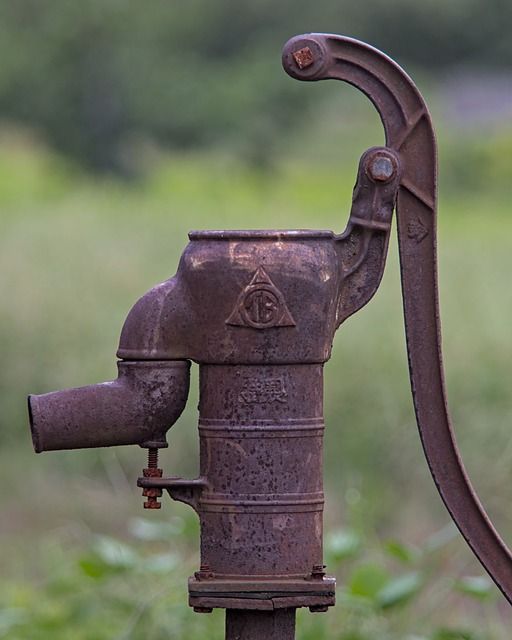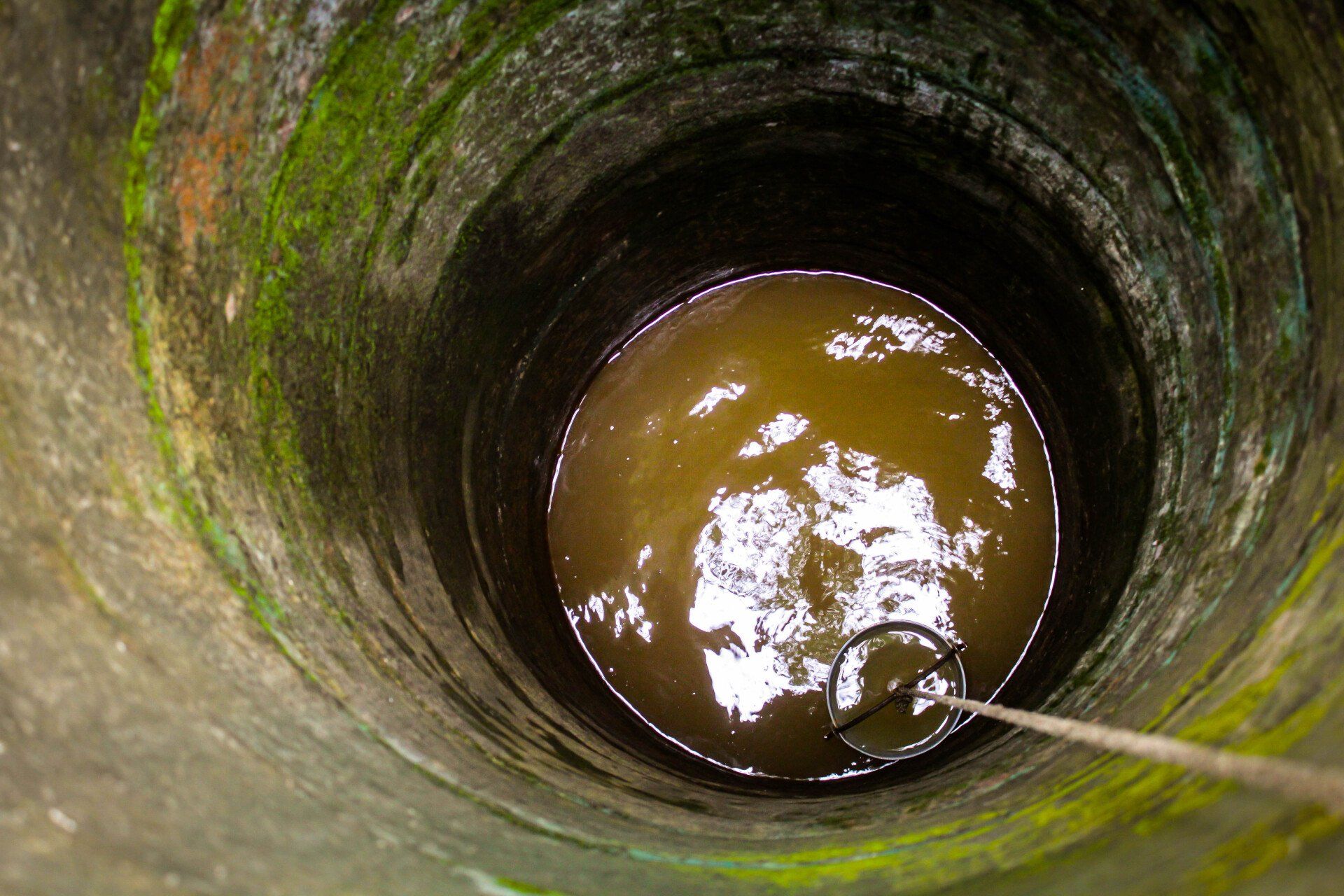Ultimate Guide to Well Pumps
If you rely on a well for your water, it’s crucial to equip it with the right pump to keep your water flowing during peak usage hours. In this comprehensive guide, we will familiarize you with how well pumps work, the different types available, and how to choose the best pump for your needs. Whether you have a shallow well or a deep well, understanding the options and selecting the appropriate pump will ensure a reliable water supply for your home.

What Is a Well Pump?
In rural areas, millions of homes rely on wells for their water supply. A well pump is an electromechanical device installed after drilling or digging a well to pump water from the well into your house. The pump is typically driven by an electric motor that powers an impeller or centrifugal pump, which pushes water through a jet or pipe. The size of the pump you need depends on factors such as the size of your property, the amount of water your household uses, and the number of plumbing fixtures in your home.
How Does a Well Pump Work?
A well pump pushes water from your well into a storage tank, which stores it until you need it. When the motor is in operation, it draws water into the pump and pushes it to the surface into a pressure tank. Pumping water into the pressure tank increases its air pressure until it reaches a preset level, typically between 40 and 60 psi. When you turn on a faucet in your house, the decreasing air pressure in the tank pushes water through your plumbing. Once the air pressure drops to around 40 psi, the pump turns back on and immediately starts driving more water into the storage tank.
Types of Well Pumps
There are three main types of well pumps: centrifugal pumps, submersible pumps, and jet pumps. Each type has its own advantages and is suitable for different well depths and water requirements.
Centrifugal Pump
A centrifugal pump operates by rotating an internal fan to create suction. Unlike other well pumps, centrifugal pumps are installed next to the well instead of inside it, making maintenance less of a hassle. However, they are only suitable for shallow wells less than 25 feet deep. Their suction power is not sufficient for use in deep wells. Centrifugal pumps are generally the most affordable type of well pump.
Submersible Pump
Submersible pumps are the most prevalent type of well pump due to their versatility. These pumps are designed to be submerged deep inside the well and are watertight, requiring minimal maintenance. They can be used in wells of any depth and provide reliable water delivery. Submersible pumps are powered by an electric motor that drives impellers to push water up the pipe and into a storage tank on the surface.
Jet Pump
Jet pumps are known for their power and ability to deliver water quickly. They can be used in wells at any depth and provide high water flow rates. Jet pumps come in two variations: single-drop and double-drop. Single-drop models are suitable for shallow wells and are installed either inside the house or in an outbuilding. Double-drop models are suitable for deep wells and require a split installation with the jet assembly in the well and the motor above ground. Jet pumps rely on water for their operation and use impellers to create pressure that drives water into the house at high pressures.
Choosing the Right Well Pump
Choosing the right well pump depends on the depth of your well and your water requirements. Here are some guidelines for selecting the appropriate pump:
- For wells less than 25 feet deep, a shallow well jet pump is recommended.
- For wells between 25 and 110 feet deep, a deep well jet pump is suitable.
- For wells between 110 and 400 feet deep, a submersible pump is the best choice.
To determine your well's depth, refer to the report provided by your well driller. If no report exists, you can measure the depth yourself using a long string and a fishing bobber. It's essential to choose a pump with the correct horsepower for your well's depth and water needs. An oversized pump can lead to reduced performance and energy inefficiencies.
Sizing a Well Pump
Sizing a well pump is crucial to ensure it can meet your home's water needs without being overworked or underutilized. Pump ratings are measured in gallons per minute (GPM), and the average home with three to four bedrooms typically requires 8 to 12 GPM. To determine the size you need, consider the number of water fixtures in your home and add one gallon per minute for each fixture. It's important to strike a balance between meeting your home's water demand and avoiding an oversized pump that may lead to unnecessary energy consumption.
Maintenance and Repairs
Proper maintenance is essential for the longevity and performance of your well pump. Regular inspections and servicing by a professional well pump technician can help identify any issues early on and ensure the pump is functioning optimally. Maintenance tasks may include checking for leaks, inspecting electrical connections, testing pressure levels, and cleaning or replacing filters. If you encounter any problems with your well pump, such as reduced water pressure or unusual noises, it's crucial to contact a professional well pump service provider to diagnose and repair the issue promptly.
Benefits of Professional Well Pump Services
While some well pump maintenance tasks can be performed by homeowners, it is highly recommended to enlist the services of a professional well pump company for more complex repairs and installations. Professional well pump services offer several benefits, including:
- Expertise and Experience: Well pump technicians have the knowledge and experience to diagnose and resolve issues efficiently. They can provide accurate assessments and recommend the best solutions for your specific needs.
- Time and Cost Savings: Professional well pump services can save you time and money in the long run. Their expertise ensures that repairs and installations are done correctly the first time, reducing the risk of further damage and the need for costly repairs or replacements.
- Warranty Coverage: Many professional well pump service providers offer warranties on their work, giving you peace of mind and protection against future issues.
- Emergency Services: In the event of a well pump emergency, professional service providers offer 24/7 emergency assistance to restore your water supply quickly and efficiently.
By relying on professional well pump services, you can ensure the continued functionality and efficiency of your well pump system, allowing you to enjoy a reliable and uninterrupted water supply for your home.
Conclusion
Choosing the right well pump is essential for maintaining a reliable water supply for your home. Understanding the different types of well pumps and their suitability for various well depths and water requirements will help you make an informed decision. Additionally, sizing the pump correctly and ensuring regular maintenance and repairs by professional well pump services will prolong the lifespan and optimize the performance of your well pump system. By following these guidelines and seeking expert assistance when needed, you can ensure a consistent and efficient water supply for your household.
For top-quality well services in Hillsborough County, consider partnering with Anytime Pump and Well Service. With their expertise and commitment to customer satisfaction, they are the trusted choice for well pump repairs and installations. Contact Anytime Pump and Well Service today to ensure your well pump system operates at its best.
You might also like
Reviving Your Water Well: Tips and Insights



Book a Service Today
We will get back to you as soon as possible
Please try again later
Your Go-To Partner for Well Pump Repair & Well Services
We are available 24/7
Location
803 Strawberry Ln, Brandon, FL 33511
Call
All Rights Reserved | Anytime Pump and Well Service | Designed by Outlookmediallc.com


